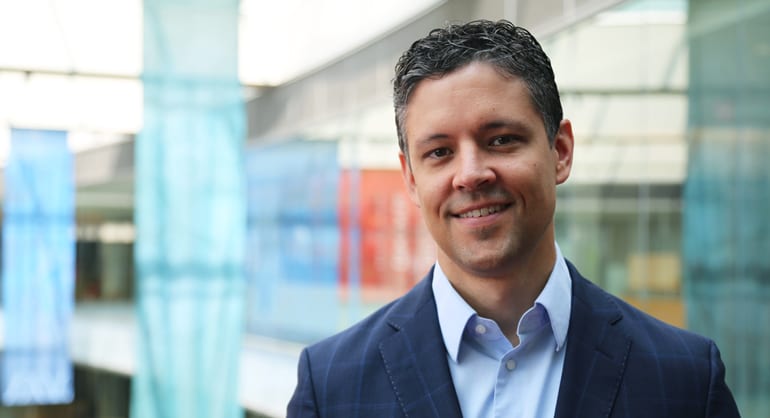
13 Dec Cracking the code of coenzyme Q biosynthesis
Coenzyme Q (CoQ) is a vital cog in the body’s energy-producing machinery, a kind of chemical gateway in the conversion of food into cellular fuel. But six decades removed from its discovery, scientists still can’t describe exactly how and when it is made.
Dave Pagliarini, director of metabolism at the Morgridge Institute for Research, says the list of unknowns is daunting. How does it migrate around in the cell? How does it get used up and replenished? What genes and proteins are responsible for CoQ dysfunction? Why does its presence decline as people age?
Pagliarini, also an associate professor of biochemistry at the University of Wisconsin-Madison, and his group are dedicated to chipping away at many of these knowledge gaps in CoQ production and in understanding the role of CoQ deficiency in human disease. CoQ deficiencies are implicated in scores of diseases, including liver and lung failures, muscle weakness, deafness and many brain disorders such as Parkinson’s and cerebellar ataxia. The coenzyme is almost exclusively produced within the body and is often very difficult to replenish through nutritional supplements.


